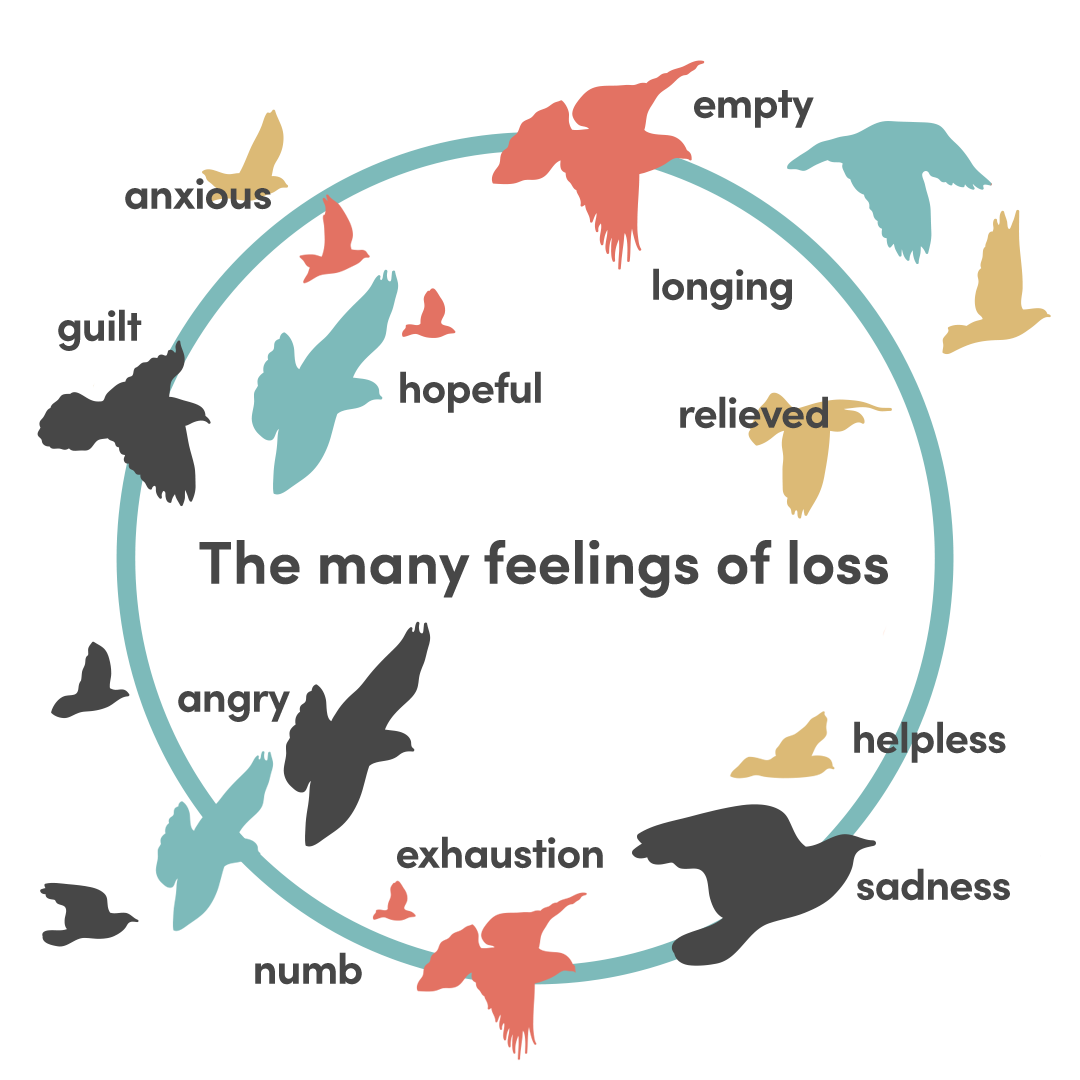Guide to Loss and Grief
What is grief?
Defining grief
Grief covers so many kinds of losses and an infinite range of emotions, it’s difficult to ‘define’ grief in a singular way.
Grief is both a universal and a personal experience. Individual experiences of grief vary and are influenced by whom or what was lost. Depending on who you are and the nature of your loss, your process of grieving will be different from another person’s experience.
With this in mind, the most basic definition of grief would be:
“Grief is the normal and natural emotional reaction to loss or change of any kind.”
Types of loss
Grief is the natural response to the loss of someone or something including. Any loss can cause grief including:
Experiencing the death of someone who may - or may not be - close to you, even a stranger
Experiencing the death of a child, a spouse/partner, a parent, a close friend, a pregnancy, or even a beloved pet
The end of a friendship, relationship, divorce, family estrangement
Job loss, retirement, change of career
Loss of financial stability
Loss of physical ability or health
Symptoms of grief
How you grieve will depend on many factors including your life experience, personality and coping style.
Although grief is an emotional process, it can manifest itself in a number of ways including physically and behaviorally:
Physical Symptoms
Sleep disturbances, insomnia
Shortness of breath
Tightness in throat
Nausea
Weight loss or gain
Fatigue
Lowered immunity
Aches and pains
Emotional Symptoms
Shock
Sadness
Guilt
Anger
Fear
Anxiety
Loneliness / Isolation
Behavioural Symptoms
Memory problems
Worrying more about others
Preoccupation
Confusion
Easily distracted
Passive resignation
Processing grief
Grieving is the process of adjustment that you go through after a loss.
Grief is often described in stages, but there are many feelings associated with loss that you may experience and grieving is a highly individual experience. There is no right or wrong way.
There is no “normal” timeframe, no schedule, no right amount of time.
Grief myths and facts
Myth: You need to be strong and ‘carry on’.
FACT: Coping with the loss of a loved one is one of life’s biggest challenges - it can cause very intense grief - but any loss can trigger feelings of grief. Whatever it is, it’s personal to you and you don’t need to feel ashamed or guilty, or believe that it is somehow inappropriate to grieve for certain things. Feeling angry, frightened, or lonely is a normal reaction to loss. Crying or feeling sad does not make you weak. You are not helping anyone - especially yourself - by putting on a brave face and burying the real emotions.
Myth: If you don’t cry, it means you aren’t really sad about the loss.
FACT: It’s okay to be angry. It’s okay to be frustrated. It’s okay to be hopeful. Just because you feel these emotions doesn’t mean you are not grieving for your loss. Crying is a normal response, but it is not the only one. Just because you don’t cry doesn’t mean that the pain you feel isn’t as deep as someone else. You just have a different way of showing it.
Myth: If you ignore the pain, it will go away faster.
FACT: In order for healing to happen, make sure to create space for your grief, express your feelings, and try to make meaning out of the loss. Trying to keep your pain from surfacing by ignoring it will only make things worse in the long run.
Myth: Grief should last about a year.
FACT: There is no right or wrong timeframe for grieving. Grief doesn’t go away — we just learn how to manage it differently day by day.





